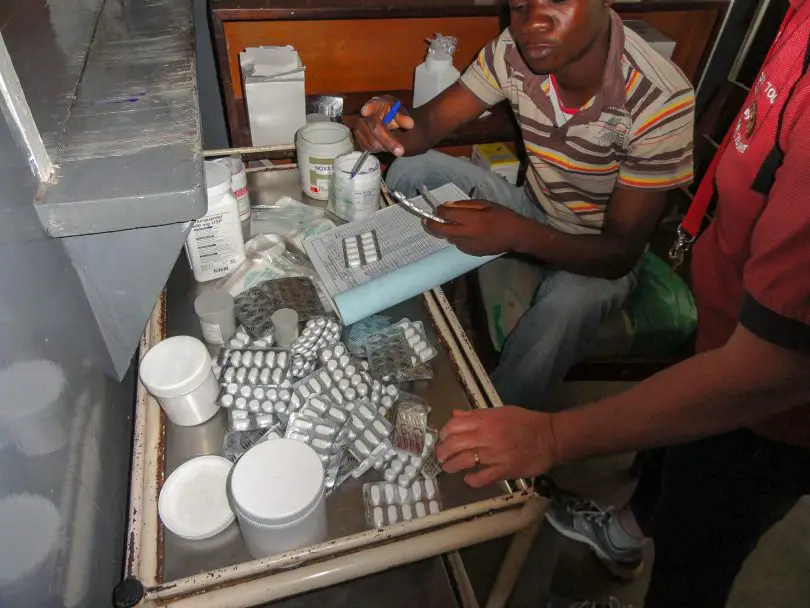updated on May 28th, 2019

We’re here with my dad’s wealth of knowledge about traveler’s health in Africa. He answers some questions we think are useful, such as what vaccines to get when traveling to Africa. As they’re gearing up for their next trip in August, my parents are full of information about preparing for a trip to Africa! –Amy
The two most important things to remember when planning your Africa vacation
There are two things you must accomplish prior to your departure date, no matter what part of the world you are traveling. Both will require some lead time, so as soon as you’ve got the details of your trip planned, get working on these:
- Make sure you are prepared regarding your health, now and on the trip. Start healthy, stay healthy!
- Get your passport and visas squared away. I’ll talk about this in the next installment.
Pre-Trip: Start Healthy!
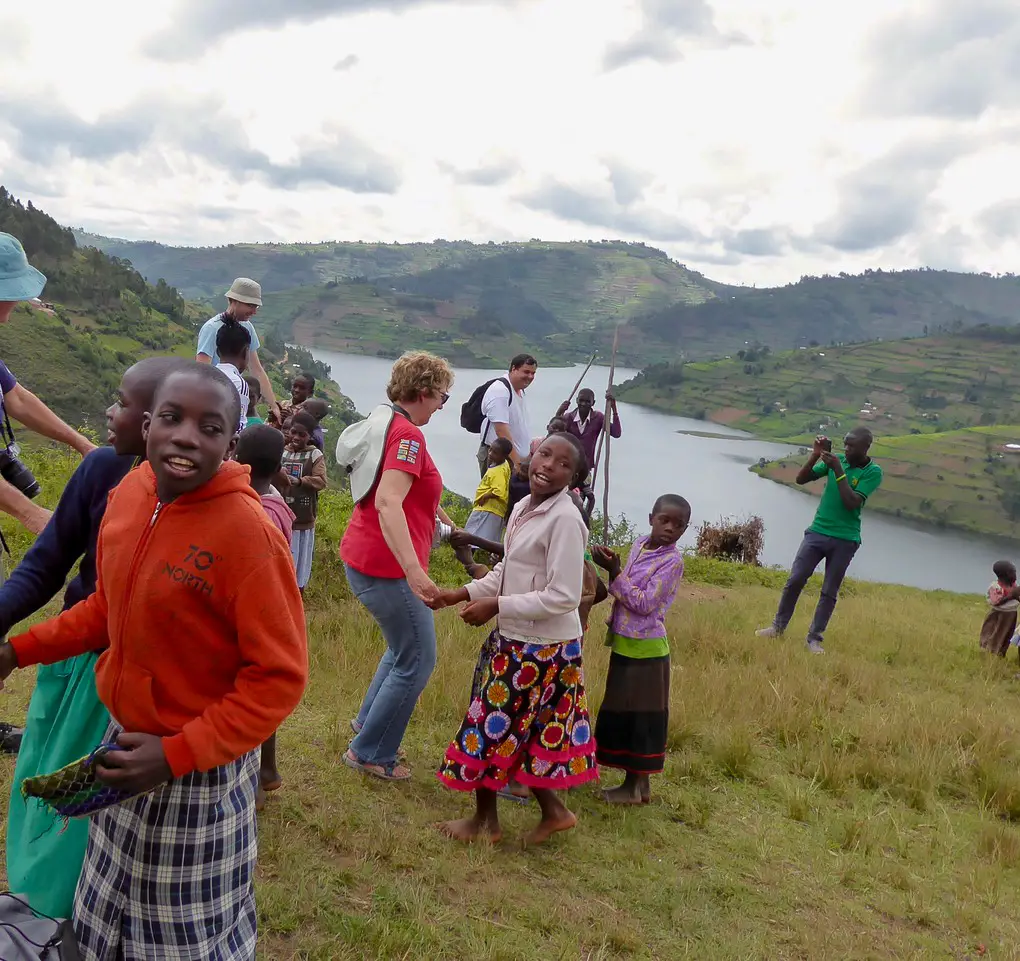
Regardless of how old you might be, can you carry your own backpack or duffel bag between the hotel room and the overland truck? Without the aid of your travelling companions? Over possibly rough terrain.
Keep in mind, no wheeled or hard-sided suitcases are allowed. On our trip we were allowed a lockable space of 14” x 14” x 31” within the truck, so you’ll want something squishy.
Are you able to go on a relaxed 2-3 hour game walk? Or climb up a 300’ sand dune in Namibia? Float down a river dodging hippos in a canoe? Occasionally use the “clean toilets” (in African speak, this means behind a bush) while traveling down the rural highway?
If you can do all of that without dragging an oxygen bottle or popping a nitroglycerin tablet, you’re probably good to go. Start Healthy!
Staying Healthy in Africa
I’ll call this section “The Battle of the Bug”! First and foremost, Africa can be very dangerous if you are not prepared. Second, and equally important, Africa will be no more dangerous than a camping trip to the Rocky Mountains if you are prepared! It’s time to do that preparation.
Find your local Travel Health clinic
We live in a big university town. The University Hospital has a Travel Health Clinic, and there’s another one run by the city we live in. Our friendly nurse reviews each country with us: the bugs and the drugs. She reviews our “International Certificate of Vaccination or Prophylaxis”. It’s a little yellow World Health Organization record. (CDC Form 731)
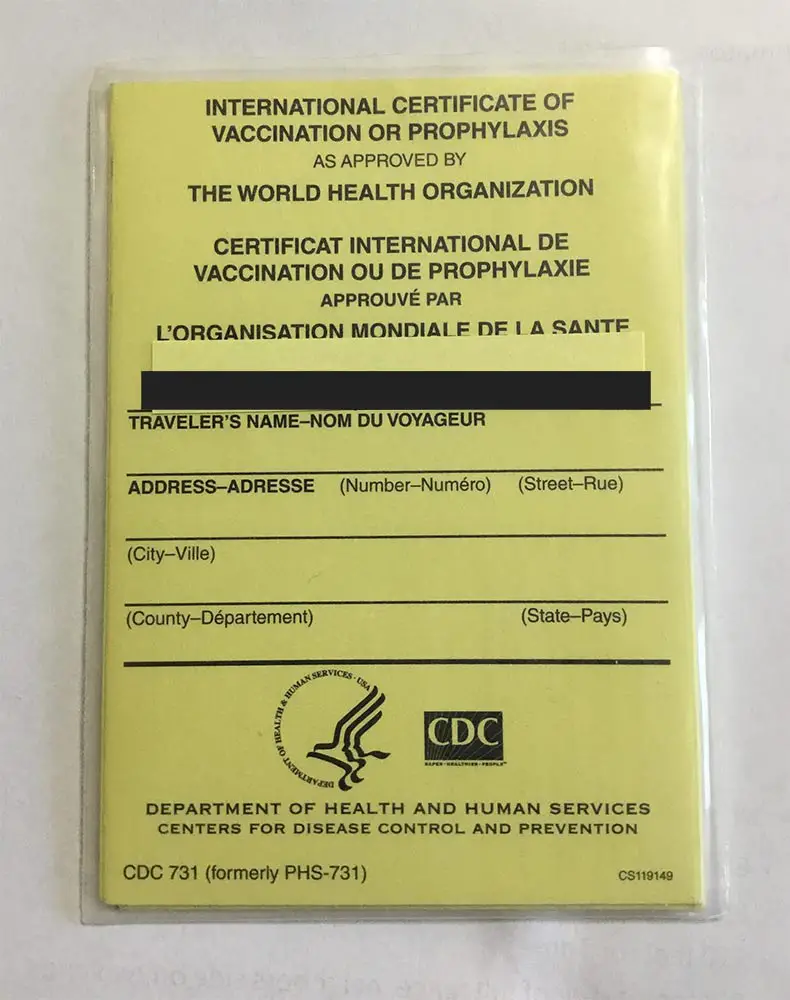
This tiny booklet is where you’ll record all of your vaccinations. Your friendly nurse will also give you a shot in your booper if you need a vaccination. Further, he/she will write you prescriptions for any prophylaxis meds that you might need like malaria pills and Traveler’s Diarrhea meds. If you are not blessed with a local travel clinic, call the County Health Department/Nurse as a starting point. DO NOT expect your family physician to be knowledgeable about world travel issues.
Lonely Planet is a great place to start when you’re beginning to research your Africa tour. Use our coupon code BOLDTOURIST10 to get 10% off at checkout!
Africa Travel Vaccines
What are the bugs that can ruin the rest of your life? What vaccines should you get to travel to Africa?
- Typhoid. Simple, get a vaccination, drink bottled water, end of issue!
- Yellow Fever. Vaccinate, also end of issue. (Some East African countries require proof of this for entry.)
- Tetanus. Everyone should have a current shot, but get one if you aren’t sure.
There are more vaccines depending on the location you visit, and visiting a travel health clinic will help you be sure you’re safe. The CDC’s website for traveler’s health is also a handy tool.
AIDS Virus and Travel to Africa
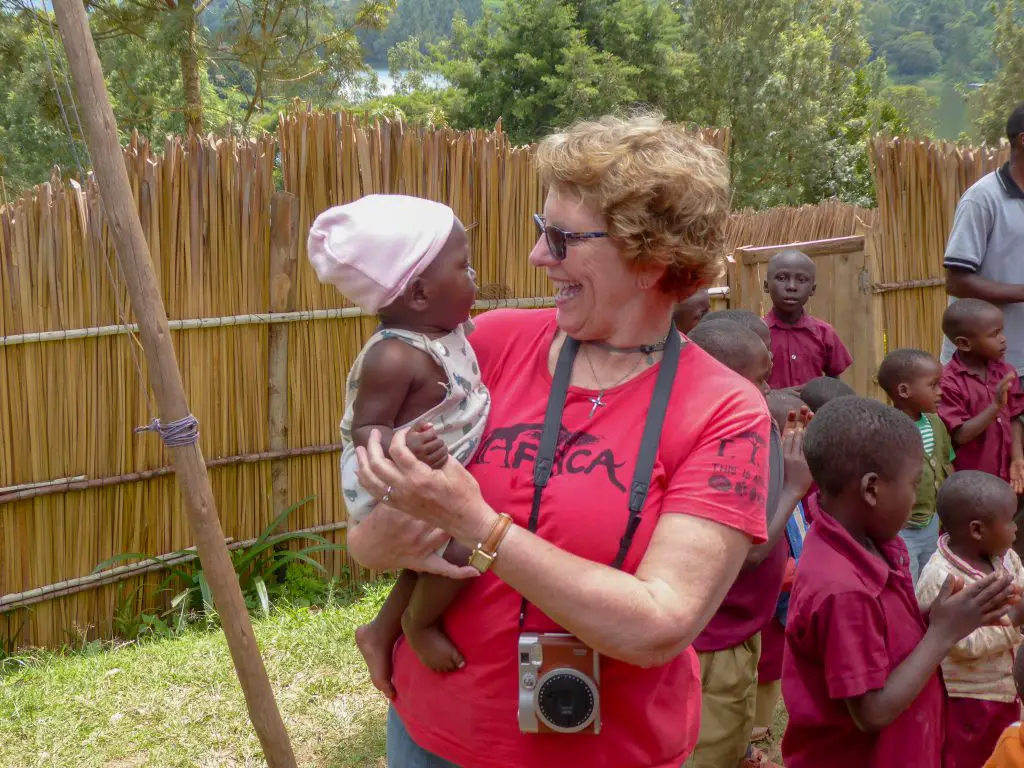
AIDS is a huge problem in Africa. A few years ago, 25% of the Zimbabwean army tested positive. Dayna (my wife) and I support an orphanage in Uganda that is filled with children whose parents are victims of AIDS. Be smart: avoid blood and body fluids and you’ll be safe.
Malaria and Travel to Africa
Over 500,000 people a year die in Africa from this one disease. At a clinic visit in Malawi a couple of trips ago, 2 out of 3 patients tested positive for malaria on their scheduled “Malaria Day”.
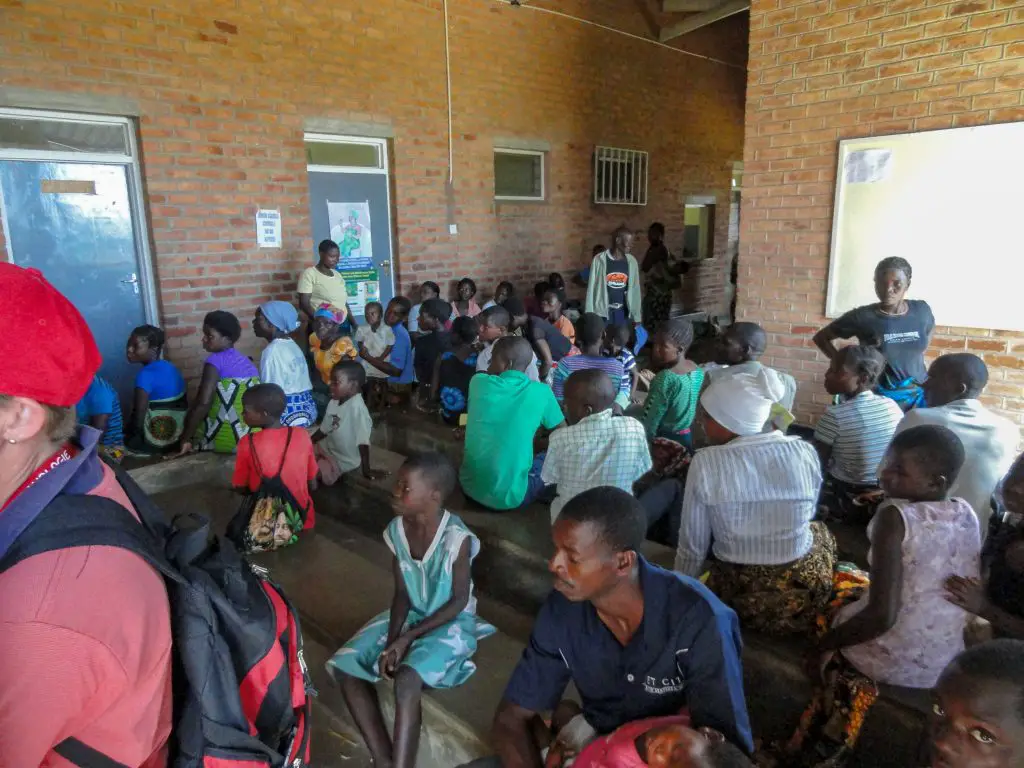
Avoiding Malaria in Africa
There is no vaccination against malaria but there are a number of prophylactic drugs that are very effective if taken as directed. Consult a professional. In my unprofessional opinion, the best thing you can do for malaria is take your meds and “bathe” daily in bug repellent. Make sure you are covered in DEET. Put it on in the early AM and later as the sun is setting. Sunrise and sunset are favorite times for malaria-carrying mosquitoes.
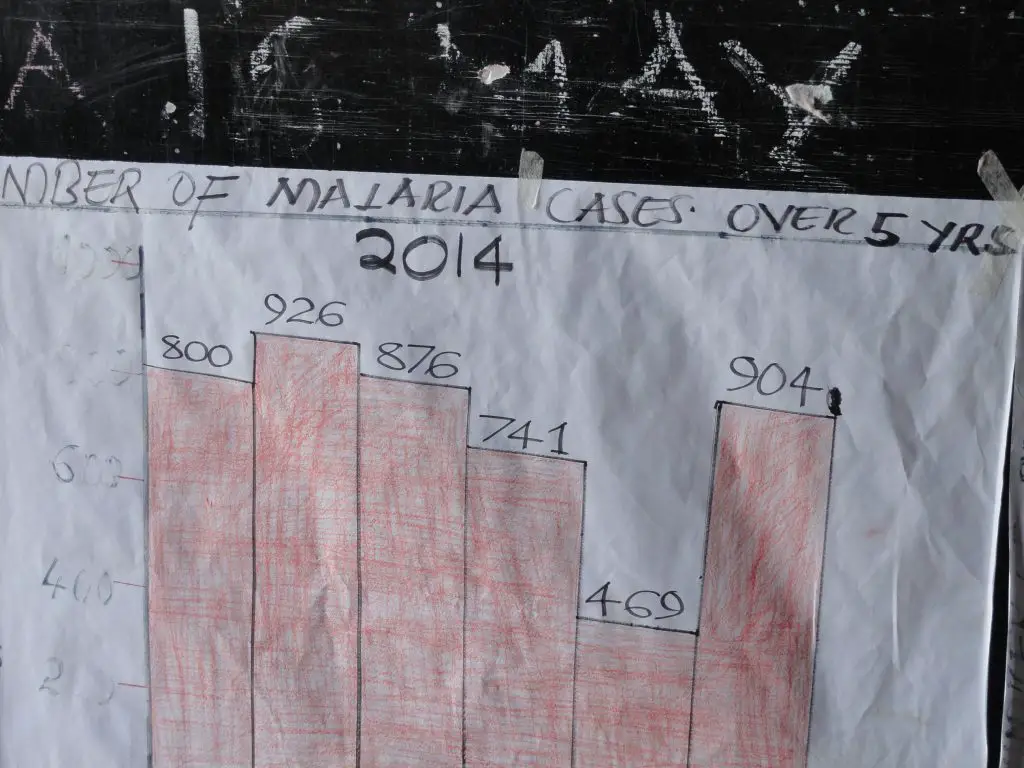
Remember, you can only carry so much bug repellent on an airplane, especially if you only have a carry-on. Luckily, it’s sold everywhere in Africa. Check with the front desk of your lodging.
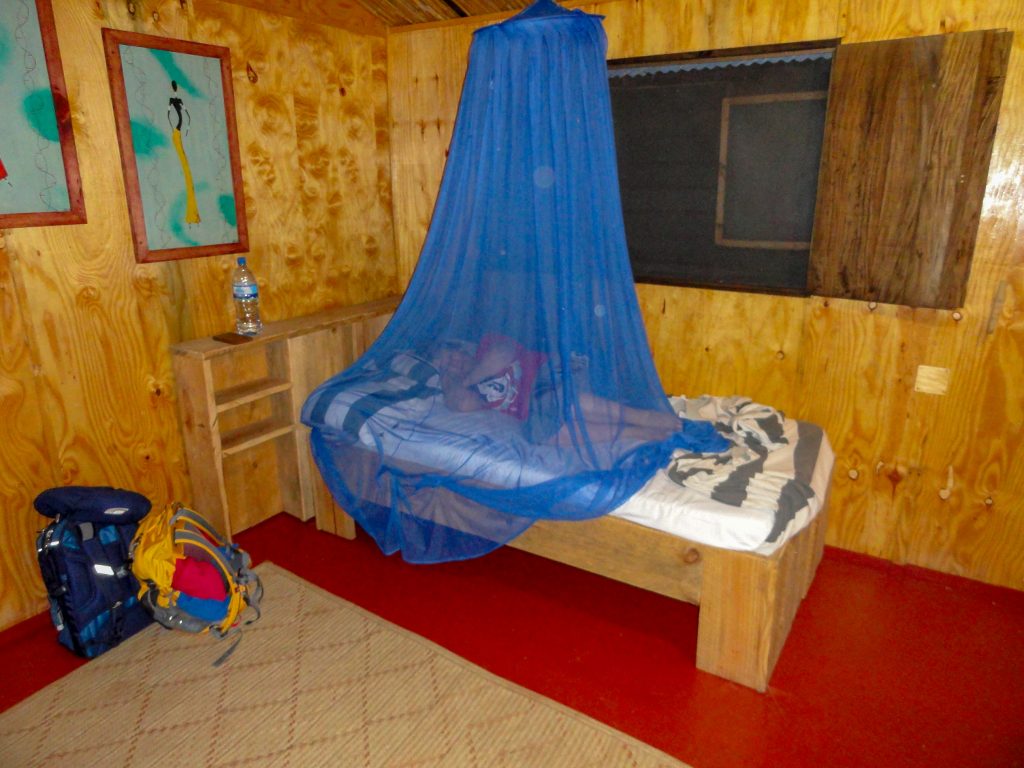
Finally, some last hints: Use the hotel mosquito netting if it is provided. Also use the room bug spray provided if it is on your nightstand. Or buy a can and carry it with you. Don’t work yourself into a lather about this but don’t be foolish either. You’ll be just fine.
Traveler’s Diarrhea and Travel to Africa
Everyone gets a case of “Hershey Squirts” or the “Green Apple Twostep” once in a while. A little “liquid cork” in pill form when traveling usually clears that up. Traveler’s Diarrhea is a different animal completely. It is a form of dysentery and can be dangerous. But there is a usually simple fix. Be knowledgeable, study up, and get your nurse at the travel clinic to write you a prescription. In all of our years of travel in Africa and SEA we’ve never had a problem, but the CDC says 30-70% of travelers can expect it to happen.
Pack a Travel First Aid Kit
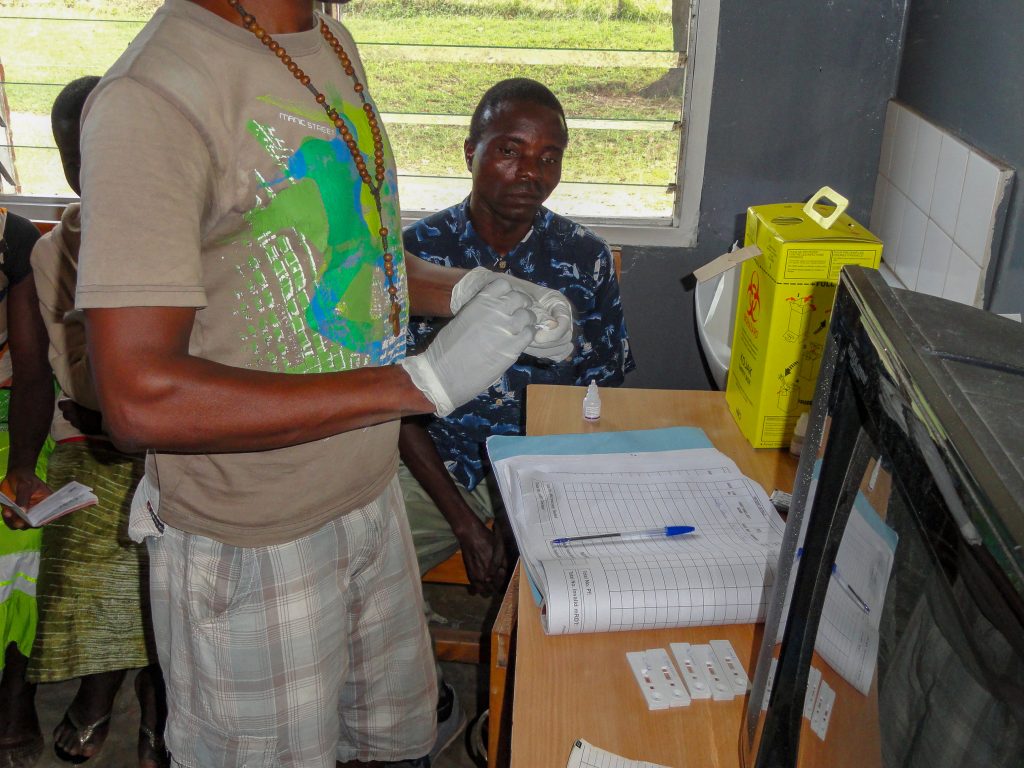
Prepare a small first aid kit. It does not need to be extensive. How often do you use one at home? Carry a few adhesive strips, a few blister pads, a small tube of antiseptic cream, a very tiny Swiss army knife if it is checked luggage, some acetaminophen (for headache), ibuprofen (for inflammation), “liquid cork” in pill form, tweezers, and a few other odds and ends. Check out this page outlining the essentials for your first aid kit.
Travel light, your overland truck will have a first aid kit if needed. And your driver/guides will know where a good western medicine clinic is located in every country. Believe it or not, your guides will almost never be outside of cell phone range in Africa.
Travel Insurance for Africa
We also highly recommend (and many Africa tours require) proof of adequate insurance. Your health insurance at home does NOT cover travel to Africa. Many credit cards offer a level of travel protection, but it is not enough for an adventurous trip such as an African tour. Our favorite company for this is WorldNomads. Should you need to cancel your trip due to unforeseen emergency, you become ill or injured during in Africa (and God forbid, need to be flown home), or you lose bags to damage or theft, a good travel insurance policy will have you covered. Click the banner below to get a quote.

Read more about planning your trip to Africa!
- Thinking of Going to Africa?
- Traveling to Africa? Where to Start
- Choosing an Africa Overland Tour Guide
- Africa Passports, Visas, and Cash
- Africa Packing List
- Uganda Gorilla Trekking- What to Expect

